The Carter Center and the International Institute for Democracy and Electoral Assistance supported a dialogue forum among the five Andean countries (Venezuela, Colombia, Ecuador, Peru, and Bolivia) and the United States. The Andean-U.S. Dialogue Forum consisted of groups of influential citizens from a variety of sectors within each country. The Carter Center and International IDEA were uniquely suited for implementing this project with each bringing years of experience in the region to the table.
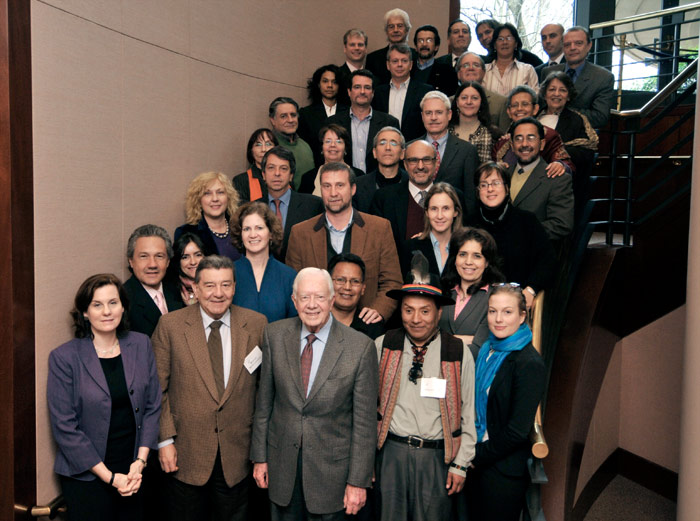 |
Forum participants attend the first dialogue session in Atlanta in February 2010. Photo credit: Carter Center /D. Hakes |
The forum's goals were to increase mutual understanding between civil society and governments in the region; create collaborative initiatives around issues of mutual concern; and promote cooperation and exchange of information between individuals, organizations, and governments in the United States and the Andean nations. Ultimately, the forum provided crucial support and reinforcement of diplomatic efforts through a civil society process. (Click here to read more background information.)
Stating in February 2010, there were four meetings of the Andean-U.S. Dialogue Forum in Atlanta, Ga.; Lima, Peru; Washington D.C.; and again in Lima.
As a result of the first two dialogue sessions, each of the U.S. forum members committed to visiting at least one of the five Andean countries in order to gain a deeper understanding of their fellow forum members' home countries as well as the prevalent issues therein. (Read more about visits to the Andean countries.)
Misperceptions and misunderstandings among countries in the Western Hemisphere have often been inflamed by politicians who use microphone diplomacy rather than direct communication to pursue foreign relations, and have at time been reinforced by polarized or politicized media. Members of the Andean-U.S. Dialogue Forum recognized that media sometimes report distorted information and thus may constitute an impediment to constructive dialogue. To encourage a more balanced reporting on contentious issues, The Carter Center organized four meetings of Colombian, Venezuelan, and, later, U.S. journalists, media directors, editors, and academics between November 2010 and June 2011. (Read more about the media dialogues.)
Please sign up below for important news about the work of The Carter Center and special event invitations.
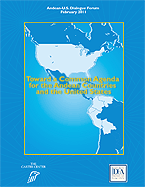 |
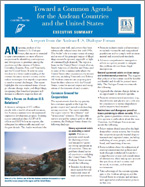 |
| Toward a Common Agenda Download (PDF) |
Executive Summary Download (PDF) |
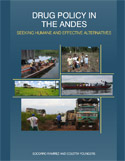 |
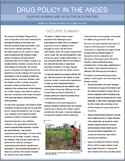 |
| Drug Policy in theAndes Download (PDF) |
Executive Summary Download (PDF) |
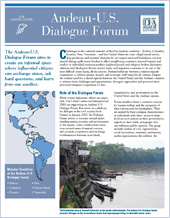 |
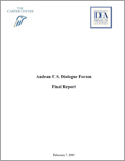 |
| Andean-U.S. Dialogue Forum Download Fact Sheet (PDF) |
Final Report:Andean-U.S. Dialogue Forum Download (PDF) |